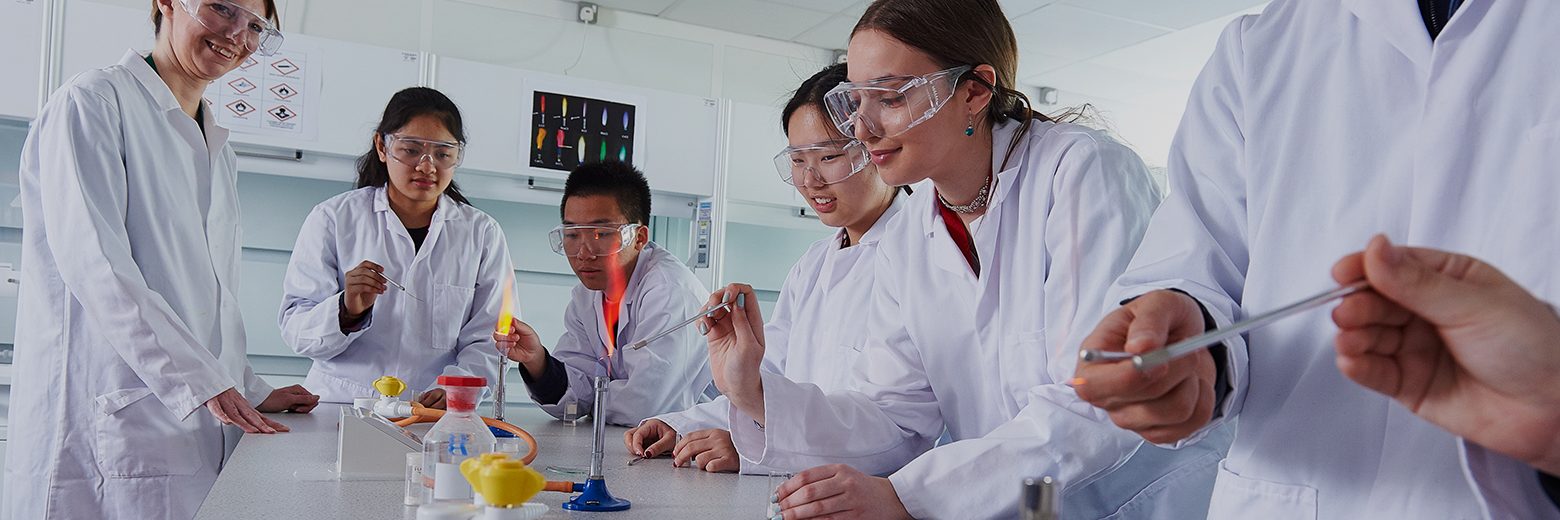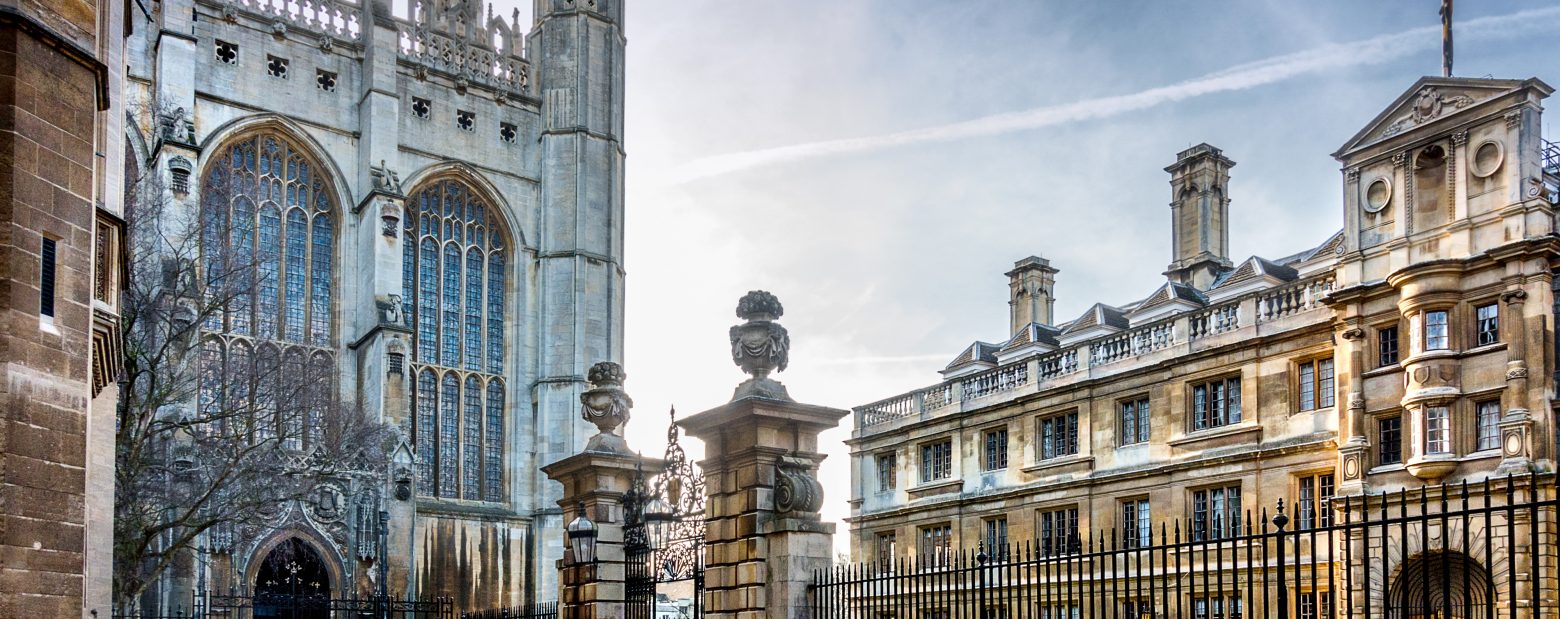A-Level Chemistry
Chemistry is the study of the elements and their compounds. Chemists try to describe and explain how and why the materials which make up our world behave.
WHAT IS A-LEVEL CHEMISTRY?
Chemistry is the study of the composition, structure, properties and reactions of substances. Chemistry seeks to explain everything that we see around us on a daily basis on a molecular, atomic or even sub-atomic level. From how the food we eat provides our cells with energy for us to function and access this website, to how the materials which make up the chair you are sitting on interact with each other to prevent you from falling to the floor.
Chemistry explores the building blocks of all living and non-living substances and tries to explain why certain substances interact with each other, how they interact and what happens when they interact.
WHY STUDY A-LEVEL CHEMISTRY?
Chemistry A-Level can lead to a great variety of degree courses other than the obvious Chemistry degree. All chemical engineering courses require Chemistry A-Level alongside the study of Mathematics. Study of Chemistry is a requirement for most medicine and dentistry degree courses in the UK. In combination with your other 2 or 3 subjects, studying Chemistry can help you gain access to just about any degree course.
A Chemistry degree can give you access to a wide range of industries including Pharmaceuticals, Biotechnology, Environment Management, Nanotechnology and Patent Law.
WHAT WILL I STUDY IN A-LEVEL CHEMISTRY?
Our A-Level Chemistry course follows the OCR specification. In the first year you will learn about the essential fundamentals of Chemistry in a course that is designed to be relevant to real world experience and interesting to learn. The course is split into the 3 traditional areas of Chemistry:
- Physical Chemistry – where you will learn about the structure of the atom, the different types of bonds and structures, redox chemistry, energetics, kinetics and equilibria
- Inorganic Chemistry – where you will learn about trends in the Periodic Table and the chemistry of Groups 2 and 7
- Organic Chemistry – where you will learn about the chemistry of alkanes, alkenes, halogenoalkanes and alcohols
In the second year you will go into more depth and introduce further new topics. It will still be split between the three main areas of Chemistry:
- Physical Chemistry – where you will develop further your knowledge of energetics and learn about thermodynamics, further your understanding of kinetics and learning about rate equations, and learn about electrode potentials and electrochemical cells and also acids and bases
- Inorganic Chemistry – where you will learn about the chemistry of Period 3, the transition metals and how ions react in aqueous solution
- Organic Chemistry – where you will learn about aldehydes, ketones, carboxylic acids and their derivatives, aromatic chemistry, amines, polymers and amino acids, and learn about modern analytical techniques such as nuclear magnetic resonance spectroscopy
Assessment
Assessment is via a combination of multiple choice questions and short answer question styles. You will also need to receive an endorsement for your practical work from the college.
CLASS VISITS AND ACADEMIC CHALLENGES
Being situated close to the University of Cambridge’s Department of Chemistry enables us to organise class visits to attend lectures delivered by world renowned scientists. Important scientists from the Royal Society of Chemistry also bring into lessons equipment used in their own research so you can gain hands on experience.
You will be given the opportunity to enter the UK Chemistry Olympiad with the potential of representing the UK in the international competition and in the Cambridge Chemistry Challenge.
GOOD SUBJECT COMBINATIONS TO TAKE WITH A-LEVEL CHEMISTRY
Chemistry is unique in sitting evenly between the other sciences, involving mathematical, high conceptual and practical activities, and to some extent, an artistic component as well. For example: Organic Chemistry is essentially the chemistry of life, and topics as diverse as amino acids and reaction rates link well with Biology. Atomic structure is concerned with interactions between fundamental particles, entropy is the fundamental idea behind why anything ever happens at all, and these topics link well with Physics. Mathematics will help with calculations and working out units, but you will get enough training on this from the Chemistry department if you are not actually studying Mathematics itself. Also, due to its development of analytical and problem solving skills, Chemistry would be a good subject to study in conjunction with subjects such as Psychology and Geography.
A qualification in Chemistry is highly valued and leads to a wide variety of careers, including Prime Minister of the UK. If you are undecided, many options are kept open by studying Chemistry.
A-LEVEL CHEMISTRY RESULTS AND DESTINATIONS
| Year | A* | A*-A | A*-B |
| 2025 | 27% | 58% | 88% |
| 2024 | 16% | 50% | 77% |
| 2023 | 26% | 69% | 89% |
Recent destinations of our A-Level Chemistry students include:
University of Cambridge – Natural Sciences
University of Oxford – Engineering
University College London UCL – Engineering (Chemical)
Brighton and Sussex Medical School – Medicine
University College London UCL – Computer Science
To read about the success of Chemistry student Agustin in the International Chemistry Olympiad, please click here
Agustin is now studying Natural Sciences at the University of Cambridge.





